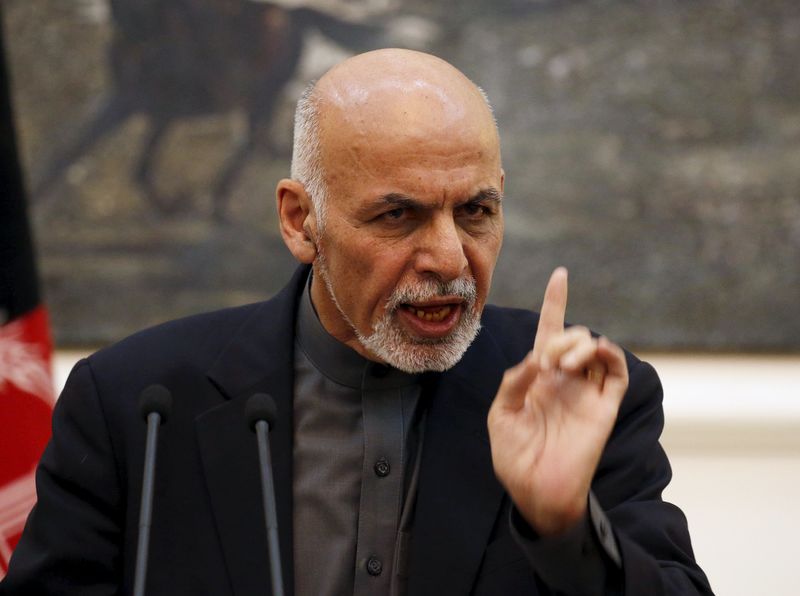KABUL (Reuters) - A group including figures from Afghanistan's anti-Soviet Mujahideen of the 1980s on Friday launched a new political bloc likely to increase the pressure on President Ashraf Ghani's struggling unity government.
The so-called Council for Protection and Stability in Afghanistan, many of whose members are close to former president Hamid Karzai, aims to push Ghani to meet commitments to hold parliamentary elections next year as well as a Loya Jirga, or grand assembly, on constitutional reform.
Though the group, which will not function as a formal parliamentary opposition party, says it wants to encourage reform and has no intention of trying to bring down the government.
But it could serve as a focus for discontent with Ghani's National Unity Government, which has struggled to implement all its reform pledges and has come under growing pressure as the Taliban insurgency has spread following the withdrawal of foreign troops last year.
Abdul Rab Rasoul Sayaf, a veteran of the fight against the Soviets in the 1980s who later joined the Northern Alliance movement fighting the Taliban, said the government had to honour its pledge to hold the Loya Jirga next year.
"The government must call the Loya Jirga on time and if it doesn't happen, the people will look for alternatives," he said at a gathering in Kabul to launch the new group.
The group also intends to pressure Ghani's government not to pursue peace talks involving Pakistan, which many in Afghanistan accuse of sponsoring the Taliban.
"Mr president, don't take your begging bowl to Islamabad and beg for peace because we have tried in the past and it didn't work," said former interior minister Umer Daudzai.
Under the power-sharing agreement reached after last year's inconclusive elections, a Loya Jirga, bringing together representatives from all over Afghanistan, must be held next year to decide on constitutional changes that would allow the creation of the post of prime minister.
Parliamentary elections must also be held by the middle of next year but there has been widespread suspicion that Ghani and Chief Executive Abdullah Abdullah may not honour the commitment and instead seek to continue their power-sharing agreement.

"If they think that the alternative to a Loya Jirga or election is consent between two individuals and extension of the contract, it will be wrong, illegal, a huge mistake and contrary to the will and expectation of the people," said Younus Qanooni, first vice president under former President Hamid Karzai.